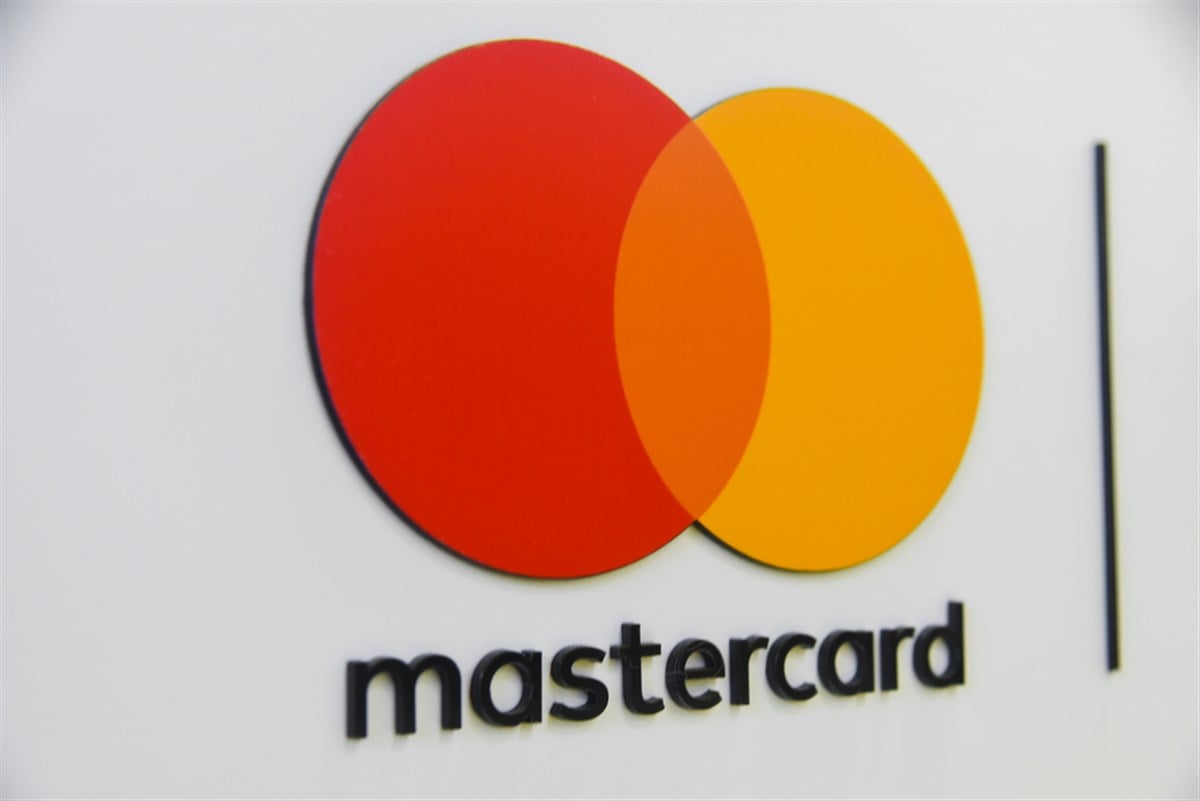
One of the most feared outcomes for the U.S. economy just became a reality. While economists argued over whether the U.S. would see a ‘soft’ landing or a ‘hard’ landing, few focused on the potential outcome of stagflation. Defined as high inflation environments coupled with slowing gross domestic product (GDP) growth, it makes for a tricky investing landscape.
U.S. GDP grew by only 1.6% over the past quarter, while inflation readings stood above the Federal Reserve’s (the Fed’s) target of 2%, with the latest index showing inflation of 3.5%. This time, the economy has been divided into two sectors: Manufacturing stocks and business services stocks, one driving GDP lower and the other driving inflation higher.
Before investors get into the weeds of how to best navigate this environment, one thing remains abundantly clear, shares of Mastercard Inc. (NYSE: MA) could be a must-have commodity in every portfolio, as the U.S. consumer sentiment index reached a 3-year high recently despite seeing an inflation-choked consumer.
Big Picture Strategy
[content-module:CompanyOverview|NYSE: MA]After contracting for over a year, the ISM manufacturing PMI index drew U.S. GDP lower, as this sector is responsible for most corporate profits and employment in the nation. On the other hand, services like food, accommodation, and even real estate services such as renting and leasing drove inflation this year.
The services PMI index has been slowing its expansion rate lately, leading markets to believe the inflation narrative would be over. However, in their recent earnings report, financial stocks like Bank of America Co. (NYSE: BAC) show that consumers rely more and more on credit.
With credit card delinquencies and write-offs on the rise, alongside deteriorating average FICO scores, more consumers may look to Mastercard to keep up with today’s stagnant – yet expensive – economy.
Stocks like Meta Platforms Inc. (NASDAQ: META), which heavily depend on the services business cycle to collect ad revenue and other such services, recently sold off on disappointing quarterly results. At the same time, manufacturing stocks like Crane (NYSE: CR) rallied by as much as 15% on quarterly reports of better business ahead.
Because the manufacturing sector needs the right conditions to make a comeback, the Fed may look to cut interest rates this year after all. A weaker dollar could cause the services sector to rotate out of inflation due to lower consumption. However, Mastercard is as safe as ever.
It’s a Resilient Buy, Despite Recent Legal Changes
Both Mastercard and Visa Inc. (NYSE: V) were forced to lower their interchange fees, which typically amount to 2% of each transaction, to help today’s consumers keep up with inflation.
Indeed, these changes now mean lower revenue per transaction for the credit card companies and the banks that issue them; however, as investors now know, the U.S. consumer is dependent on these cards to survive a stagnant GDP with stubbornly high inflation.
All these lower fees really do for the stock is increase potential volume, as relief may cause users to ramp up transaction volumes. However, according to Mastercard’s fourth quarter 2023 earnings report, these trends had already started.
Gross dollar volume increased by 10% over the quarter, with purchase volume up 11%. Because banks like J.P. Morgan Chase & Co. (NYSE: JPM) are typical Mastercard issuers, they get an inside look into what fees the credit card company may collect, which is why investors should pay attention to this.
Having that inside look, analysts at J.P. Morgan expect to see Mastercard stock rally by as much as 13% from today’s prices, as they see a $520 price target as of April 2024. More than that, the stock saw up to $347.2 billion in institutional inflows over the past 12 months.
Market’s Top Pick Versus Peers
Investors could wonder why a Mastercard deserves more money than a Visa. Markets can answer that question in two ways: Earnings per share (EPS) expectations and how these projections are valued today through the forward P/E ratio.
Analysts think Visa's EPS could grow by 10.8% this year, while Mastercard's is to beat at 15.5%. This divergence merits a forward P/E valuation of 28x for Mastercard, a premium of 13% over Visa's 25x multiple. More than that, in terms of price-to-book valuation, markets are still willing to overpay for Mastercard.
Once again, trading at a 64.5x P/B multiple places Mastercard above Visa’s 13.5x valuation. The saying “It must be expensive for a reason” applies here, as growth does favor Mastercard in more ways than just EPS.
According to their first quarter 2024 presentation, Visa’s total card count grew to 4.4 billion from 4.2 billion a year prior, a net increase of 200 million (or 4.7% growth). On the other hand, Mastercard’s presentation shows net card figures jumping from 3 billion to 3.3 billion, a 10% growth to double Visa’s rate.
Driven by fundamentals and growing macro trends, Mastercard’s sudden ‘must-have’ status makes it an undeniable watchlist addition during this new cycle.






